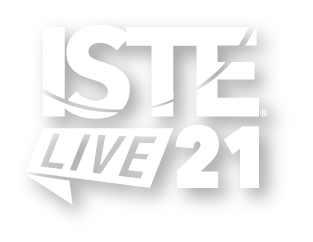

The Esports Experience: Empowering Every Learner Through Inclusive Gaming |
Explore and create : Creation lab
Chris Aviles Steve Isaacs Christine Lion-Bailey Jesse Lubinsky
Esports has become a dominant force in schools and has become the athletics of remote learning. Whether you are completely new to esports, looking to start your own program, seeking ways to make your existing program even better, or just curious, this session will offer something for everyone.
| Audience: | Chief technology officers/superintendents/school board members, Principals/head teachers, Teachers |
| Skill level: | Beginner |
| Attendee devices: | Devices not needed |
| Topic: | Equity & inclusion |
| Grade level: | 6-12 |
| Subject area: | Career and technical education, STEM/STEAM |
| ISTE Standards: | For Coaches: Digital Age Learning Environments
Empowering Leader
Collaborator
|
Participants will be able to successfully plan for and drive implementation of an esports program in their own schools/districts.
Participants will be able to identify the key aspects of defining a school culture that respects and embraces esports.
Participants will understand and be able to leverage curricular and standards based connections within esports practices.
Participants will have the hands-on experience of playing an esports game to understand what is involved.
Intro to esports- 20 minute overview of they why and how of esports. Focus will be given to equity issues and highlighting how eschools has not just become the athletics of remote learning but is the first sport to allow every student to compete at a varsity level regardless of athletic ability. This will serve as a means to energize the participants.
Meet the Athletes- 10 minutes of video clips highlighting interviews with college level esports athletes.
Play and coach esports- one 30 minutes gaming window with a 10 minute debrief.
Reflect and debrief - 20 minutes of reflection of esports experience from both the athlete and the coach perspective. Share and discuss best practices in establishing the creation of a team or club.
Participants will assume the roles of athletes and coaches in this esports simulation experience whereby they will collaborate and communicate on the topic of esports and the perspectives they gain in the experience.
Participants will spend majority of the time interacting with devices and esports programs.
There will be a model competition highlighted in the session whereby we will review best practices, tips and sportsmanship as it pertains to esports.
Aviles, Chris, Isaacs, Steve, Lion-Bailey, C., & Lubinsky, J. & Shippee, M. The Esports Education Playbook: Empowering Every Learner Through Inclusive Gaming. 2020. Dave Burgess Press.
Craig G. Anderson, Jennifer Dalsen, Vishesh Kumar, Matthew Berland, Constance Steinkuehler. 2018. Failing up: How Failure in a Game Environment Promotes Learning Through Discourse. Thinking Skills and Creativity. Science Direct.
Dalsen, J., Anderson, C. G., Squire, K. & Steinkuehler, C. (2018) Situating Big Data In M. Young & S. Slota (Eds.), Exploding The Castle: Rethinking How Video Games & Game Mechanics Can Shape The Future Of Education (pp. 216-242). Charlotte, North Carolina. USA.
West, Christopher, A. (2020) E-Sports in Academia: A Comparative Analysis of Secondary and Post-Secondary E-Sports Athletes’ Experiences (ProQuest Number: 28088855) [Doctoral dissertation, Lamar University].



